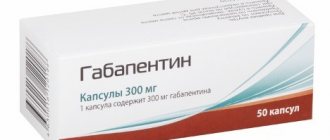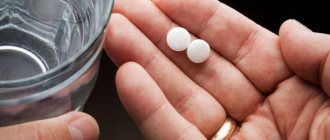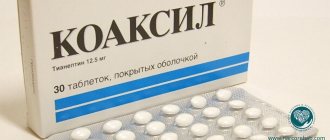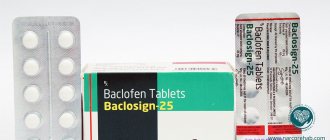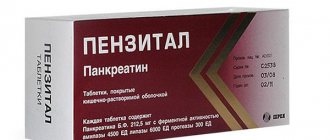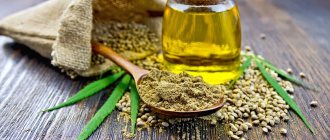Tryptophan and the nervous system
Supplementation of this amino acid to the diet is considered as a treatment for depression and sleep disorders, mainly due to tryptophan's connection with the synthesis of serotonin (the happy hormone) and melatonin (the sleep hormone). In addition, tryptophan supplements are used as an additional treatment to help treat cognitive disorders, depression, or neurodegenerative diseases.
Decreased serotonin secretion, in turn, is associated with autism spectrum disorder, obesity, anorexia and bulimia nervosa, and other diseases presenting symptoms of peripheral diseases. The literature strongly suggests that tryptophan plays a significant role in the proper functioning of the brain-gut axis and immunology.
Available information suggests tryptophan to be an important dietary component due to its role in the serotonin pathway [1].
What does amino acid deficiency mean?
Firstly, and this is the most important thing, tryptophan deficiency entails a lack of serotonin and vitamin B3, the production of which directly depends on this amino acid. Hence – nervousness, sleep disturbances, PMS.
Secondly, insufficient tryptophan intake coupled with a lack of magnesium causes coronary artery spasms. Dermatitis, digestive problems, diarrhea, and mental disorders can also signal an amino acid deficiency. In addition, a lack of the substance can cause cardiac diseases, and also cause an unhealthy addiction to alcohol and fatigue.
Tryptophan metabolism
The WHO recommended daily intake of tryptophan from food is 4 mg/kg (1/2 to 2 g per day). In addition, it is important to know that the entry of tryptophan into the brain depends on the amount of free tryptophan in the blood and on the concentration of other amino acids (such as BCAAs) that compete with tryptophan for transporters used to cross the blood-brain barrier.
The enzyme tryptophan hydroxylase, which catalyzes the conversion of tryptophan to 5-hydroxytryptophan (5-HTP), can be inhibited by various factors such as stress, insulin resistance, vitamin B6 deficiency, or magnesium deficiency. For this reason, magnesium and vitamin B6 are often used together for nervous system disorders. Their deficiency prevents tryptophan from converting into 5-HTP and subsequently into serotonin [2].
Daily requirement
The daily dose of tryptophan is determined based on the age and health status of the person. And on this issue, the opinions of experts are divided. Some claim that the amino acid requirement of a healthy adult body is approximately 1 g. Others determine the recommended daily dose using the formula: 4 mg of tryptophan per kilogram of weight. Thus, a 70-kg person should receive approximately 280 mg of the substance daily. But both of them are unanimous in the opinion that reserves of useful substances should be drawn from natural food, and not pharmacological drugs. By the way, there is evidence that consuming carbohydrates and proteins at the same time increases the amount of absorbed tryptophan.
People with various types of mental disorders, migraines, sleep disorders, low pain threshold, cardiac diseases, chronic fatigue syndrome, anorexia, bulimia, and alcohol addiction should be extremely attentive to consuming the required daily amounts of tryptophan (and even a little more).
Taking the amino acid in higher doses may be dangerous for people with Price, Thad, or Hartnup syndrome, or those with tryptophan storage disorders.
Tryptophan as a precursor to serotonin
Tryptophan is the only precursor to the neurotransmitter serotonin. Supplemental tryptophan may enhance serotonin neurotransmission to produce therapeutically important effects and reverse serotonin deficiency. Anorexia nervosa (AN), an eating disorder associated with high rates of psychiatric comorbidity, including psychosis, hyperactivity, depression and anxiety, has the highest mortality rate of all psychiatric diseases. Evidence suggests that excessive dieting and food restriction may reduce tryptophan and thus serotonin levels in the brain in patients, causing depression, psychosis and hyperactivity. It has been found that, in general, patients with depression are deficient in tryptophan compared to healthy subjects. Two intervention studies examining the effects of L-tryptophan or 5-HTP supplementation on depression found that both tryptophan and 5-HTP were superior to placebo in relieving depressive symptoms [3].
In one study, the subjects were male patients suffering from alcoholism and associated depression and sleep disorders. Subjects taking L-tryptophan 3 g per day for 4 days reported significantly lower levels of depression than participants receiving placebo [4].
Meaning for humans
The substance has an incredibly wide range of positive effects on the body. Tryptophan is used to combat insomnia and sleep rhythm disturbances, and is used for depression and anxiety.
It was also noted that the presence of the required amount of amino acid relieves the symptoms of premenstrual syndrome, facilitates the process of quitting smoking, and helps people who are professionally involved in sports improve their results.
Content:
- Meaning for humans
- Interesting research
- Digestibility
- Daily requirement
- What does amino acid deficiency mean?
- Dangers of Overdose
- Food sources
- Interaction with other drugs
Despite the fact that humans are unable to synthesize tryptophan on their own, this substance is essential for normal life. For example, the production of vitamin B3 (niacin) would stop completely without tryptophan. It would also become problematic for the body to produce serotonin, the so-called “happiness hormone,” which is of particular importance for the functioning of the brain and nervous system. In addition, our mood, quality of sleep, level of pain threshold and intestinal motility and susceptibility to various types of inflammation depend on the concentration of serotonin.
In addition, tryptophan is an assistant in the fight against hyperactivity in children, stress, excess weight and excessive appetite. It has been found that most people who suffer from migraines have abnormally low levels of tryptophan.
Among other functions of the substance:
- activation of growth hormone;
- has a beneficial effect on the heart by neutralizing the effects of stress;
- partial protection of the body from the harmful effects of nicotine;
- prevention of recurrent bulimia.
The effect of tryptophan on sleep
The earliest experimental results convincingly demonstrated the sleep-inducing effects of L-tryptophan in doses ranging from 1 to 15 g at bedtime. But a later laboratory study expanded the dose-response curve by comparing even smaller doses of 1/4, 1/2, and 1 g of L-tryptophan versus placebo in 15 subjects with moderate insomnia (sleep latency greater than 30 minutes). One gram of L-tryptophan significantly reduced sleep latency, but lower doses produced a trend in the same direction. Stage IV sleep was significantly increased by 1/4 g of L-tryptophan at bedtime. Thus, the effective dosage of tryptophan taken before bed may be within 1 gram [5].
The effect of tryptophan on appetite
Gut hormones such as cholecystokinin and glucagon-like peptide-1 (GLP-1) play a role in satiety factors. Strategies to increase the secretion of satiety hormones may provide a therapeutic approach to the treatment of obesity.
One study examined the role of oral tryptophan at dosages of 0.52 g and 1.56 g on the secretion of these hormones in individuals without diabetes. At a higher dose, L-tryptophan stimulated the release of cholecystokinin, induced a significant delay in gastric emptying, and caused a slight increase in GLP-1 secretion [6]. In another study in normal-weight and overweight men, 3 g of tryptophan consumed 15 minutes before a carbohydrate meal reduced postprandial blood glucose by slowing gastric emptying [7].
Later experiments revealed that tryptophan taken within 1-1.5 g affects both intestinal motility and hormonal function, significantly reducing energy consumption. The strong inverse correlation between energy intake and plasma L-tryptophan suggests that, in addition to intestinal mechanisms, the direct effects of circulating L-tryptophan also mediate its inhibitory effect on food intake [8].
Another interesting study linked amino acid intake to large-scale changes in brain networks involved in regulating metabolism. A direct connection between satiety hormones and brain regions involved in metabolic regulation was confirmed by a positive correlation between brain activity in the insular cortex and plasma insulin levels after oral administration of L-tryptophan (within 1 g). Supplementation with L-tryptophan (or L-leucine) immediately affected specific brain networks that support the food-reward system and appetite regulation [9].
Tryptophan for interval training
Team sports players perform better on the field if they take 600 mg of the amino acid tryptophan daily. Scientists from the University of Barcelona came to this conclusion after conducting experiments on students involved in sports.
Tryptophan and exercise
Discussions among physiologists about whether tryptophan enhances performance tend to end in deadlock. Tryptophan is a precursor to the neurotransmitter serotonin. If you have more serotonin in your brain than usual, you feel good. Your brain becomes less sensitive to pain, and you will be less distracted by unpleasant thoughts and unnecessary information. Thus, supplementation with tryptophan may create a condition that also helps improve athletic performance.
Conflicting Research
In the 1980s, this idea inspired researchers at the University of Barcelona to conduct an experiment with students playing sports. Students were required to run at an intensity that was 80% of their maximum oxygen consumption. At this level of intensity, you can no longer hold a conversation without getting out of breath. When subjects were given 600 mg of tryptophan before running, they ran almost fifty percent longer than after taking a placebo. In 1992, researchers from the Norwegian University of Sport and Physical Education repeated the experiment with several modifications.
They gave subjects 1200 mg of tryptophan and forced them to work at 100% of their maximum oxygen consumption. This had no effect. [10]
Dutch researchers in the mid-nineties also did not record any effect. They gave their subjects tryptophan not before, but during physical activity. [11] But one person who is most reluctant to believe that tryptophan can improve athletic performance is the researchers who believe in the ergogenic effects of BCAAs. These amino acids are generally believed to reduce fatigue during endurance events because they interfere with the entry of tryptophan into the brain, thereby preventing its conversion to serotonin. [12] [13] [14]
According to this theory, the brain can only absorb a limited amount of amino acids. During intense physical exercise, muscles take all amino acids from the blood except tryptophan. As a result, the brain absorbs more tryptophan and converts it into serotonin, and serotonin causes athletes to feel tired. Supplementing with BCAA inhibits the brain's uptake of tryptophan, reducing fatigue and increasing endurance, while supplementing with tryptophan only leads to negative effects, say BCAA proponents.
Research on the effect of tryptophan
Spanish researchers who demonstrated the performance-enhancing effects of tryptophan in 1988 conducted another experiment decades later. Scientists forced 20 sports students aged 20-22 to do an hour-long interval training on a bicycle ergometer. The training session simulated the training load of team sports players during a match.
First, students cycled for 10 minutes at 50% of their VO2max (maximum oxygen consumption level). They then drove for exactly 30 seconds at top speed. The subjects had to repeat this cycle three more times. Finally, the students cycled for another 20 minutes at 50 percent of their VO2max.
The researchers ran the test twice. In one case, students took 2 capsules containing 300 mg of tryptophan for three days before the test and on the day of the test itself (two hours before the start of the cycle). In total, they took 600 mg of tryptophan per day.
Results of the effect of tryptophan on interval training
The supplement worked. The figure below shows that during half of the burst 30-second sessions, tryptophan resulted in greater average power and greater peak power. Simply put, athletes were able to pedal harder when they took tryptophan.
Moreover, subjects walked more distance in the last 20 minutes of the test when they took tryptophan. This can be seen in the picture above.
Researchers have found that supplementing with tryptophan reduces the increase in fatigue. In experiments where tryptophan had no effect, it is possible that too high a dose of tryptophan was used or that it was not given sufficiently in advance of the exercise. The authors of this study suggest that tryptophan may not only be a precursor to serotonin, but also related compounds that do not cause fatigue and may actually have stimulating effects.
Can tryptophan change behavior?
If you take a few grams of the amino acid tryptophan every day, you will behave in a more dominant manner. This follows from a human study that Canadian psychologists published in 2001 in the journal Neuropsychopharmacology. According to the material, adding tryptophan also makes you a little less grumpy.
Study of behavioral factors after tryptophan intake
In the body, enzymes convert the amino acid tryptophan into 5-hydroxytryptophan (5HTP) and 5-HTP into serotonin.
Serotonin is a neurotransmitter that plays an important role in our well-being. Its levels usually decrease with depression, but if we win a conflict or climb the social ladder, serotonin levels usually increase.
The researchers wondered whether adding tryptophan could change behavior, so they gave 98 subjects 3 grams of the supplement daily for 12 days. During each of three meals, subjects took 1 capsule containing 1000 mg of tryptophan. Another time, subjects were given a placebo. The researchers determined the subjects' behavior by presenting them with a daily list of statements from which the participants had to indicate whether they applied to their behavior.
Argument-related statements included, for example, “I made a sarcastic comment,” or “I gave incorrect information,” “I was impatient,” and “I raised my voice.” Statements associated with dominant behavior included “I asked the other for something,” “I spoke my mind,” and “I set goals for the other.”
Research results
Tryptophan supplementation made subjects behave more dominantly and reduced grumpiness, but did not change compliance. In addition, tryptophan reduced the maximum and average levels of aggressive behavior.
The supplement had side effects and the most common was fatigue. This is likely due to the fact that tryptophan is also converted into the sleep hormone melatonin at the end of the day.
“In conclusion, our study provides preliminary evidence that increasing serotonin levels may reduce aggressive behavior and increase dominance in healthy individuals,” the Canadians wrote. “These conclusions should remain preliminary until confirmed, taking into account possible order effects. However, our study indicates the feasibility
further research examining the influence of specific neurotransmitter systems on human social interaction in everyday life. These studies may also be generalizable to patients suffering from different types of psychopathology and may reveal the extent to which different psychopharmacological agents, as well as psychotherapeutic methods, alter specific aspects of social interaction."
Tryptophan capsules 200 mg No. 10x3
Name
Tryptophan caps. 200 mg in container pack No. 10x3
Description
White hard gelatin capsules.
Main active ingredient
Tryptophan
Release form
Capsules
Dosage
200mg
pharmachologic effect
Tryptophan is one of the 8 essential amino acids. In addition to participating in protein synthesis, tryptophan is a source of formation in the brain of serotonin, melatonin, kynurenine, and quinolinic acid, which play an important role in the regulation of behavior, mood, cognitive functions and sleep. In addition, taking tryptophan increases the levels of dopamine, norepinephrine, and beta-endorphin in the brain and modulates endocrine functions through serotonin metabolism.
Indications for use
Correction of sleep disorders associated with difficulty falling asleep; alcohol and drug addiction (as part of complex therapy to level out the manifestations of withdrawal syndrome).
Directions for use and doses
Use internally. It is recommended to swallow the capsules whole, without chewing, with a small amount of water. For chronic insomnia, take 20-30 minutes before expected sleep with water. Adults over 18 years of age are prescribed 1 g (5 capsules). On the recommendation of a doctor, the dose can be increased to 2 g (10 capsules). Alcohol and drug addiction (as part of complex therapy to level out the manifestations of withdrawal syndrome) - 3-4 times during the day in a daily dose of up to 2 g along with meals rich in carbohydrates, which increases the effectiveness of tryptophan. There is insufficient experience with long-term treatment. The recommended duration of tryptophan intake is 3-4 weeks; the need to continue therapy is determined individually after consultation with a doctor. Children and adolescents under 18 years of age Tryptophan is not recommended for use in children under 18 years of age due to lack of sufficient experience with use.
Use during pregnancy and lactation
Tryptophan is not recommended for use during pregnancy and breastfeeding, since there is no sufficient experience with the use of the drug during these periods.
Impact on the ability to drive vehicles and other potentially dangerous mechanisms
Considering the possibility of drowsiness and dizziness when taking tryptophan, you should refrain from driving or operating potentially dangerous mechanisms.
Precautionary measures
Before taking Tryptophan, causes of sleep disturbances such as depressive disorders or other mental disorders must be excluded, since the absence of adequate treatment is associated with risks for the patient (see below “Suicidal thoughts/suicidal behavior”). Caution should be exercised when co-prescribing tryptophan with phenothiazine drugs or benzodiazepines (see section “Interaction with other drugs”), as well as with monoamine oxidase inhibitors (including selegiline, procarbazine and furazolidone). While taking tryptophan, blood pressure may increase or decrease; blood pressure monitoring is necessary. Caution should be exercised when taking dextromethorphan (part of antitussives) concomitantly. Eosinophilia-myalgia syndrome Eosinophilia-myalgia syndrome (EMS) has been reported after ingestion of products containing L-tryptophan. This multisystem disorder is usually reversible, but in rare cases it can be fatal. The causes of EMS syndrome have not been fully established. EMS may include the following signs: eosinophilia, joint pain, muscle pain, fever, respiratory distress, neuropathies, peripheral edema, skin disorders (sclerosis, papular or urticarial lesions). If any of these symptoms appear, it is necessary to stop taking the drug, examine the patient and rule out EMS syndrome. Serotonin syndrome Due to the interaction between L-tryptophan and serotonin reuptake inhibitors, serotonin syndrome may develop, the early signs of which are agitation, restlessness, tachycardia, increased blood pressure, tremor, myoclonus, gastrointestinal disorders, including diarrhea. Suicidal ideation/suicidal behavior: Depression and other mental disorders are associated with an increased risk of suicidal ideation, self-harm, and suicide. The increased risk persists until there is significant relief from the symptoms of the underlying disease. Therefore, these disorders must be diagnosed before starting Tryptophan. In patients with a history of suicidal behavior or who are (pre-treatment) suicidal, the risk of suicidal thoughts or suicide attempts may be increased when taking tryptophan, especially in patients under 25 years of age. Such patients should be under close medical supervision during treatment, especially at the beginning of treatment and after dose adjustment. Patients themselves and their caregivers should be warned of the need for constant monitoring and immediate notification of the doctor if the symptoms of the disease do not decrease or worsen during treatment, as well as in the event of behavioral changes or the appearance of suicidal thoughts. Children and adolescents under 18 years of age Since there is insufficient experience with use, tryptophan is not intended for use in this age group.
Interaction with other drugs
Tryptophan can enhance the sedative effect of neuroleptics, antidepressants, anxiolytics, and alcohol. When combined with MAO inhibitors, tricyclic and heterocyclic antidepressants, as well as selective serotonin reuptake inhibitors, the risk of developing serotonin syndrome (tremor, hypertonicity, myoclonus, hyperactivity, hallucinations, etc.) increases. These symptoms disappear without consequences after discontinuation of tryptophan. The effect of tryptophan may be enhanced when co-administered with phenytoin and weakened when co-administered with carbamazepine. Tryptophan may reduce the effects of levodopa due to competition for absorption and transport to the brain. In the case of simultaneous or previous use of drugs from the group of phenothiazines or benzodiazepines, an increase in sexual desire is possible. When used together with tryptophan, the effect of lithium salts, as well as drugs characterized by a high degree of binding to blood plasma proteins (for example, digitoxin) may be enhanced.
Contraindications
hypersensitivity to the active substance or to any of the components; severe liver failure, hepatic encephalopathy; severe kidney disease, renal failure; carcinoid syndrome with carcinoid cardiomyopathy (Hedinger-Syndrome); previous history of eosinophilia-myalgia syndrome (EMS). EMS is characterized by eosinophilia (more than 1.0×109/l) and severe myalgia in the absence of an infectious or oncological disease; serotonin syndrome; combined use with antidepressants from the group of monoamine oxidase inhibitors and selective serotonin reuptake inhibitors. Not recommended for children and adolescents under 18 years of age, pregnant women and breastfeeding women.
Compound
For one capsule Each capsule contains: active ingredient: L-tryptophan – 200 mg; excipients: methylcellulose, calcium stearate. Composition of hard gelatin capsule number 0: gelatin, titanium dioxide (E 171).
Overdose
Symptoms of tryptophan overdose are headache, dizziness, vomiting, diarrhea, flatulence; rarely – signs of serotonin syndrome (when combined with antidepressants). If symptoms of overdose appear, the dose of the drug should be adjusted or the drug should be discontinued. Treatment of overdose is symptomatic, including, if necessary, the use of vital signs.
Side effect
According to clinical studies, Tryptophan in recommended doses is well tolerated. Like all active drugs, tryptophan can rarely cause allergic reactions and more or less severe gastrointestinal disorders. In the first 2-3 days of taking the drug, nausea may occur. If allergic reactions develop, stop taking the drug. There have been reports of cases of suicidal thoughts or suicidal behavior while taking or early after discontinuation of drugs containing tryptophan (mainly when prescribed concomitantly with antidepressants or serotonergic drugs). In combination with antidepressants (especially MAO inhibitors), tryptophan can induce the occurrence of serotonin syndrome (tremor, myoclonus, hyperactivity), the symptoms of which disappear after stopping the drug. Side effects are classified by system and organ, their frequency is unknown (cannot be estimated based on available data): Disorders of the blood and lymphatic system: eosinophilia. Mental disorders: suicidal thoughts, suicidal behavior. Nervous system disorders: dizziness, headache, drowsiness, sedation. Vascular disorders: increased or decreased blood pressure, edema. Gastrointestinal disorders: nausea. Skin and subcutaneous tissue disorders: photosensitivity reactions. Musculoskeletal and connective tissue disorders: myalgia. General disorders and disorders at the injection site: asthenia, fatigue. If any adverse reactions occur, including those not listed in these instructions, you should consult a doctor.
Storage conditions
In a place protected from moisture and light at a temperature not exceeding 25 ° C. Keep out of the reach of children.
